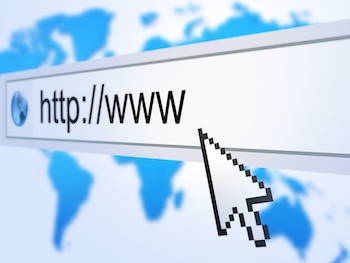SINGAPORE – A plan to give control of the Internet’s technical operations to a diverse range of groups, including governments and businesses, instead allowing the state sole power, is gathering international support, participants at a Singapore meeting on the web’s future said Thursday.
The meeting convened by the Internet Corporation for Assigned Names and Numbers (ICANN) was the first since the US government announced on March 14 it would hand over control of the Internet domain name system to a group comprised of various stakeholders in order to preserve the web’s freedom.
Some countries like China and Russia want oversight of the Internet’s technical functions to come under a group of governments or an inter-governmental organization.
Kuek Yu-Chuang, ICANN’s vice president and managing director for the Asia Pacific, said “there is widespread agreement” on the multi-stakeholders’ model.
 However, “there have been some suggestions on the table that maybe the governments can have an enhanced role,” he told AFP.
However, “there have been some suggestions on the table that maybe the governments can have an enhanced role,” he told AFP.
Revelations by former National Security Agency contractor Edward Snowden of massive snooping of Internet traffic by US intelligence had given fresh impetus to calls for control of the web to be pried out of American hands.
ICANN, a US-based non-profit group, controls domain names like .com and .org and Internet addresses under a contract with the US government that expires in September 2015.
ICANN has been tasked to lead talks on the transition, expected to be in place by the time its contract ends.
About 2,000 delegates from 150 countries attended the Singapore meeting, including those from governments, businesses, academe and Internet organisations.
Vast Majority Want a New Model
“Some people will say that governments should have more control and some will say that the multi-stakeholders model needs to be completely preserved,” said Paul Wilson, director general of the Asia Pacific Network Information Centre (APNIC), the region’s Internet registry.
He told AFP that this is a “fundamental difference that could carry through” discussions in the next 18 months. Wilson however said that a “vast majority” of governments support the multi-stakeholders’ model.
“What we see is that the majority of governments, the vast majority, very clearly recognise the… benefits (of the model),” he said.
Wilson noted that debates at previous stakeholders’ meetings were “much more polarised, much more black and white” and were marked with “muscle flexing” but this was no longer the case.
Critics say that having governments, especially those with authoritarian leaders, control the Internet’s domain name system would allow states to clamp down on dissent and the freedom of expression.
At present, the US government approves top level domain names such as .com, .net and .org. However, it also has control over domain names that involves countries like .ir for Iran, .ru for Russia and .cn for China, a situation that has sparked resentment from some governments.
Leaders of groups responsible for the Internet’s technical infrastructure warned at a meeting in Montevideo, Uruguay last year, that the web risked fragmentation at the national level if allegations of “pervasive monitoring and surveillance” pushed governments to take control.
“If the Internet fragments, it’s a big question mark on whether Singaporean users can use US services,” Kuek of ICANN said.
“Do we need to have a free trade agreement in order for Singaporean users to access American platforms, websites and services? I don’t know. This is a big question mark,” he said, underscoring the need for a global governance of the web.
Discussions on the web’s future shift to a broader meeting of stakeholders in Sao Paolo, Brazil next month called NetMundial, in which both technical and non-technical aspects of the Internet will be tackled.














